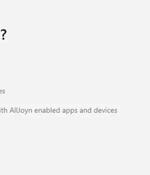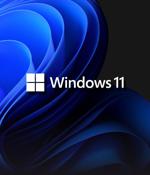Security News

Microsoft on Thursday said it’s once again disabling the ms-appinstaller protocol handler by default following its abuse by multiple threat actors to distribute malware. “The observed threat actor...

Microsoft has again disabled the MSIX ms-appinstaller protocol handler after multiple financially motivated threat groups abused it to infect Windows users with malware. Microsoft says the threat actors use both malicious advertisements for popular software and Microsoft Teams phishing messages to push signed malicious MSIX application packages.

A new phishing campaign is leveraging decoy Microsoft Word documents as bait to deliver a backdoor written in the Nim programming language. "Malware written in uncommon programming languages puts...

Organizations in the Defense Industrial Base (DIB) sector are in the crosshairs of an Iranian threat actor as part of a campaign designed to deliver a never-before-seen backdoor called FalseFont....

Microsoft says the APT33 Iranian cyber-espionage group is using recently discovered FalseFont backdoor malware to attack defense contractors worldwide. "Microsoft has observed the Iranian nation-state actor Peach Sandstorm attempting to deliver a newly developed backdoor named FalseFont to individuals working for organizations in the Defense Industrial Base sector," the company said.

Microsoft is deprecating Defender Application Guard for Edge for Business users. Microsoft Defender Application Guard blocks potential threats by opening them in a secure sandbox using hardware-based virtualization.

In an audit [PDF] published Tuesday, the OIG found NASA has a "Comprehensive privacy program that includes processes for determining whether information systems collect, store, and transmit PII; publishing System of Records Notices; and providing general privacy training to its workforce." That's a welcome assessment, given NASA employs around 16,000 people and - as with all government agencies - collects PII about them and the contractors, partners, and members of the public it engages.

Microsoft has fixed a known issue causing Wi-Fi network connectivity problems on Windows 11 systems triggered by recently released cumulative updates. Microsoft resolved this widespread known issue through Known Issue Rollback, a Windows feature that helps reverse flawed non-security updates delivered via Windows Update.

Microsoft has confirmed that some Windows 11 devices experience Wi-Fi connectivity issues after installing recent cumulative updates. "Microsoft has received reports of an issue in which some Wi-Fi adapters might not connect to some networks after installing KB5032288," Redmond said in a new update to the Windows release health hub.

Four vulnerabilities, one of which is rated critical, have been discovered in the Perforce Helix Core Server, a source code management platform widely used by the gaming, government, military, and technology sectors. The four flaws discovered by Microsoft mainly involve denial of service issues, with the most severe allowing arbitrary remote code execution as LocalSystem by unauthenticated attackers.